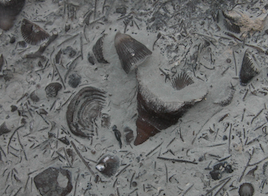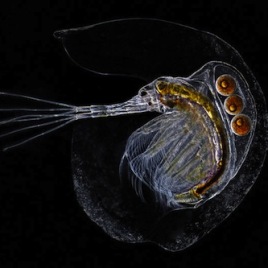For the first time, astronomers have used a ground-based telescope to observe a ‘super-Earth’ – an exoplanet twice as big as the Earth – pass in front of a nearby Sun-like star. Currently, most Earth-like exoplanets are discovered by space-based telescopes like NASA’s Kepler. Scientists hope that future space telescopes such as TESS in 2017 and PLATO […]
Tag: Ontario
Treatment for Type 1 diabetes shown to work on human pancreas cells transplanted into mice
An amino acid produced by pancreas was shown to prevent and even reverse Type 1 diabetes in mice injected with human pancreatic cells, a new study shows. Type 1 diabetes is a disease that cause the immune system to destroy insulin-producing cells, called Beta cells. Researchers had already shown back in 2011 that the amino […]
Only half of patients take their medications as prescribed
A new comprehensive review shows that only about half of all patients who are prescribed medication actually take their medication as prescribed. Interventions such as support from family members or pharmacists, education and text messaging were not found to improve the situation in a reliable manner. The authors are now encouraging collaboration between researchers so […]

World’s first mass extinction was many events, not one
The world’s first mass extinction 444 million years ago was likely caused by a series of freeze-ups, and not a single massive ice age as previously thought. The extinction, which marks the boundary between the Ordovician and Silurian ages, wiped out 85 per cent of life in the oceans. In the new paper, fossil records […]
Silver nanoparticles could upset gut bacteria
Silver nanoparticles that leak from water filters could alter the community of bacteria in the human gut, according to a new study. Silver nanoparticles are meant to kill harmful bacteria in portable water filters, but if they leak into drinking water they could also kill beneficial bacteria in our digestive systems. A simulated gut bacterial […]

The ‘jellification’ of Canada’s freshwater lakes
A strange jelly-covered organism is taking over various lakes in Canada, and the cause is a kind of ‘aquatic osteoporosis’ due to low calcium levels, according to a new study. Researchers studied two kinds of tiny crustaceans about 1 mm or less in size: Daphnia – AKA water fleas – have a hard shell, while Holopedium […]
Does ecology influence religion?
A new study suggests that environmental factors, alongside social and cultural factors, may play a strong role in determining the type of religion associated with a particular society. Researchers analysed 583 societies around the world to determine the role played by linguistic, historical, cultural and environmental factors in the dominant religion. In particular, they found […]
Healthy baby birth weight depends on mother’s birth country
Babies born in Canada from immigrant mothers, especially from East and South Asian mothers, are often of lower weight than babies from Canadian’s mothers, but it’s not worrisome a new study shows. It’s usually thought that smaller infants are more likely to die or suffer adverse events than heavier infants. Research now shows that clinicians […]
Why anesthesia may cause memory problems
After surgery using a general anesthetic, up to a third of patients experience memory problems for months afterward and a new study helps explain why. Many anesthetics work by binding to specific receptors (GABA A receptors) in the brain and increasing the function of these receptors, leading to drowsiness and memory loss. The new study shows […]

How squirrels avoid ‘roid rage
A new study shows that Arctic ground squirrels use anabolic steroids to beef up for winter hibernation, but that they have evolved systems to avoid the negative side effects. Most hibernating animals burn fat during the winter, Arctic ground squirrels hibernate at such low temperatures that they need to burn muscle as well. A previous […]
How to prevent a world without antibiotics
A new mathematical model suggests that in addition to looking for new drugs, we should also be using strategies to prolong the life of old ones. Most drugs only work for a certain period of time until organisms develop resistance. This lifetime can be prolonged by using antibiotics sparingly or combining them into ‘drug cocktails’ […]
Alternative hospital funding can be risky
A review of worldwide experience with an alternative model of hospital funding suggests that it increases the number of patients needing post-acute care. Activity-based funding (ABF) is a system whereby hospitals are paid a set rate for each episode of care, intended to fund the bundle of services provided to patients with particular diagnoses, as […]
Screening software could help find new drugs
A new method of screening molecules for their ability to bind to enzymes and other proteins could help discover potential new drugs. A newly built model looks at covalent bonding, a much stronger type of chemical attraction but one that is harder to model. Computer models that predict which molecules will interact with enzymes have existed […]
Pushing the limits of chemistry with iridium
A chemical containing the element iridium has set a new record for the highest recorded formal oxidation state in the periodic table of the elements. Formal oxidation state describes the number of electrons an atom loses or gains when it joins with other atoms in chemical compounds; the higher the oxidation state, the greater the […]
Controlling Ebola outbreak in West Africa most effective way to decrease international
Controlling the Ebola virus outbreak at the source in West Africa is the most effective way to decrease international risk of transmission, a new study of global airline travel patterns shows. The authors used a model that predicts that three people infected with Ebola are predicted to fly from West Africa (Guinea, Liberia, and Sierra […]
Got milk? No? Check your vitamin D
Children who drink rice, almond, soy or goat’s milk have lower levels of vitamin D in their blood than those who drink cow’s milk, according to a new study. Canadian regulations stipulate that every 100 millilitres of cow’s milk must be fortified with 40 International Units of vitamin D, non-cow’s milk is not subject to […]
